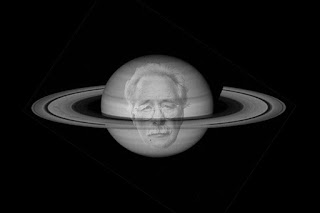W. G. Sebald (May 18, 1944 - Dec. 14, 2001) is my favorite German writer of his (and my) generation. He died on this day 14 years ago in a car accident.
I consider Sebald a soul mate (I hope this doesn't sound too presumptuous). We are both expatriates (I do not use the word "immigrants" because it implies a degree of identification with the country I live in that I do not feel), and neither of us can shake a horrified awareness of the atrocities committed by Germans of our parents' generation during the Nazi period.
I do not say "memory" because we were too young to have experienced any of this first-hand, but these events become memories for Sebald's protagonists in search of their past and, through them, for the narrator to whom they tell their stories. Through him, a barely disguised Sebald himself, they become like memories also for us, the readers.
It is not surprising that Sebald's temperament appears to be overshadowed by what reviewers have called a deep-seated "melancholy". But it is also important to note that this melancholy can give way to fits of outrage or be lightened, at other times, by a sly sense of humor.
What comes across, in the end, is a profound unease about the world he knows, which resounds powerfully with me and has made reading him one of my addictions.
Addendum (12/18/15). Our affinities extend to reactions to specific authors or artists. Nabokov seems to have had a specific appeal for Sebald—the writer appears, in person, in several of his stories—and Nabokov is also one of my favorite authors. Furthermore, Sebald appears to be as impressed by the painter Mathias Grünewald as I am. This elusive painter is the subject of one of the three poems in Nach der Natur (After Nature), and one of the protagonists in Die Ausgewanderten (The Emigrants) visits Colmar in France specifically to see Grünewald's masterpiece, the Isenheim Altar. I have been to Colmar for the same purpose, and standing in front of the crucifixion at the center of the altar, I experienced something that I can only describe as an existential shock—it had never happened before and has never happened again when I came across a piece of art.
Carol Jacobs on W. G. Sebald
All Hallows' Eve
2 months ago




